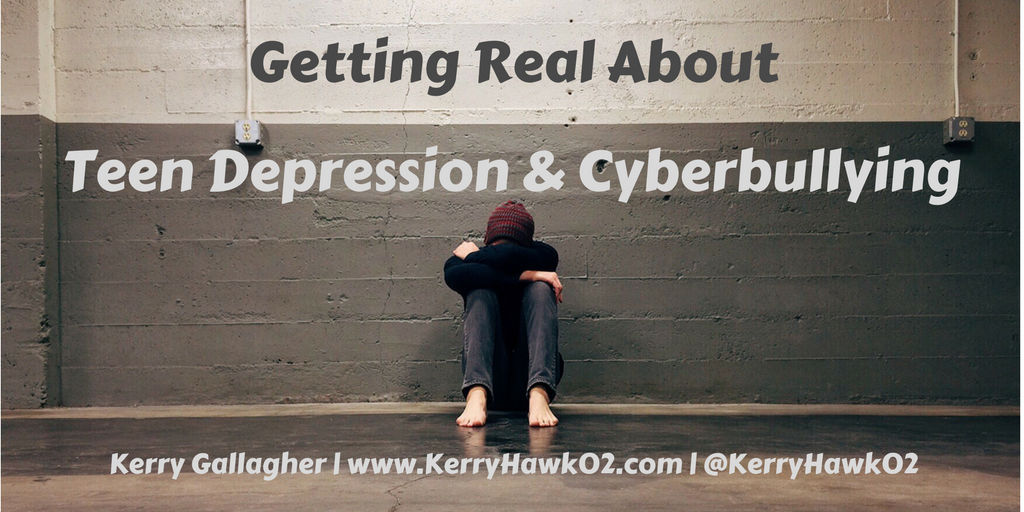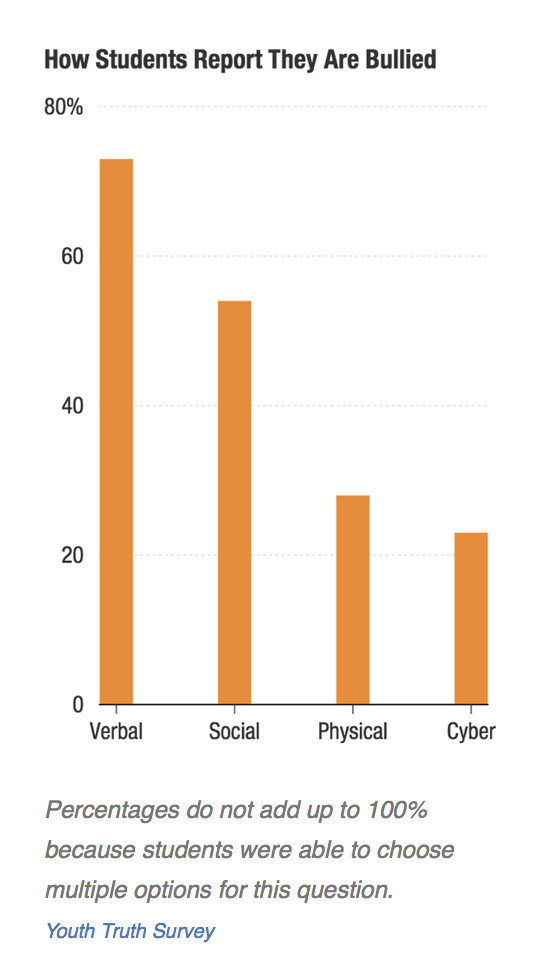Getting Real About the Teen Depression-Cyberbullying Connection

A couple of months ago I wrote a response to a psychologist's theory that smart phones are responsible for the increase in teen depression and anxiety. The overemphasis on screen technology as a root cause for the increase of major depressive episodes among teens and young adults is not new. The most popular articles about this topic found online, like this recent one from Time, will continue to confirm that screens are the problem because it is an easy answer and soothes adults who are not sure how to manage the tech use of the adolescents and teens in their lives. There is not doubt, the stories of individual teens they tell in those articles are touching and concerning.

According to the Mayo Clinic, the true causes of teen depression are:
- biological chemistry
- hormones
- inherited traits
- early childhood trauma
- learned patterns of negative thinking
Surely some of the learned patterns of negative thinking can stem from some interactions students have online, especially cyberbullying. While cyberbullying is a phenomenon educators and parents need to help their children understand and overcome, its prevalence should not be overestimated. In fact, a recent survey shows that most bullying is verbal and the vast majority is in person.

[Why Student Creation is the Hardest/Best Form of Assessment]
This information is not meant to minimize the traumatic impact cyberbullying can have. (There is help available. My favorite resources are ConnectSafely's Parent's Guide to Cyberbullying and Parent, Educator & Youth Guide to LGBTQ Cyberbullying.) It is meant to provide a realistic understanding of the myriad of causes of teen depression and anxiety. Even if we were able to eradicate cyberbullying among children and adults, the major causes of teen depression would still exist. It's time to stop blaming devices and apps and start addressing the true root causes more holistically.

The well-being of the teens and adolescents in your life depends on your awareness of ALL potential causes of depression and anxiety. In addition to the Mayo Clinic webpage hyperlinked earlier, I also recommend the National Institute of Mental Health. Read them, build your awareness, and be careful to avoid simple explanations – like blaming cell phones and social media – for the rise in teen depression and anxiety. Raising and educating healthy children is challenging, complicated, and incredible rewarding.
cross posted at www.KerryHawk02.com
Tech & Learning Newsletter
Tools and ideas to transform education. Sign up below.
Kerry Gallagher is the Assistant Principal for Teaching and Learning at St. John’s Prep in Danvers, Massachusetts. She’s also the Director of K-12 Education for ConnectSafely.org – internet safety non-profit in Palo Alto, California – a FutureReady Instructional Coach, ASCD Emerging Leader, and EdSurge Columnist. She served as a middle & high school teacher and digital learning specialist for over 15 years, and her passions include digital citizenship and effective integration of curriculum, pedagogy, and edtech. Kerry is a TEDx & keynote speaker and a lawyer by training. She is on social media @KerryHawk02 and her website is www.KerryHawk02.com
